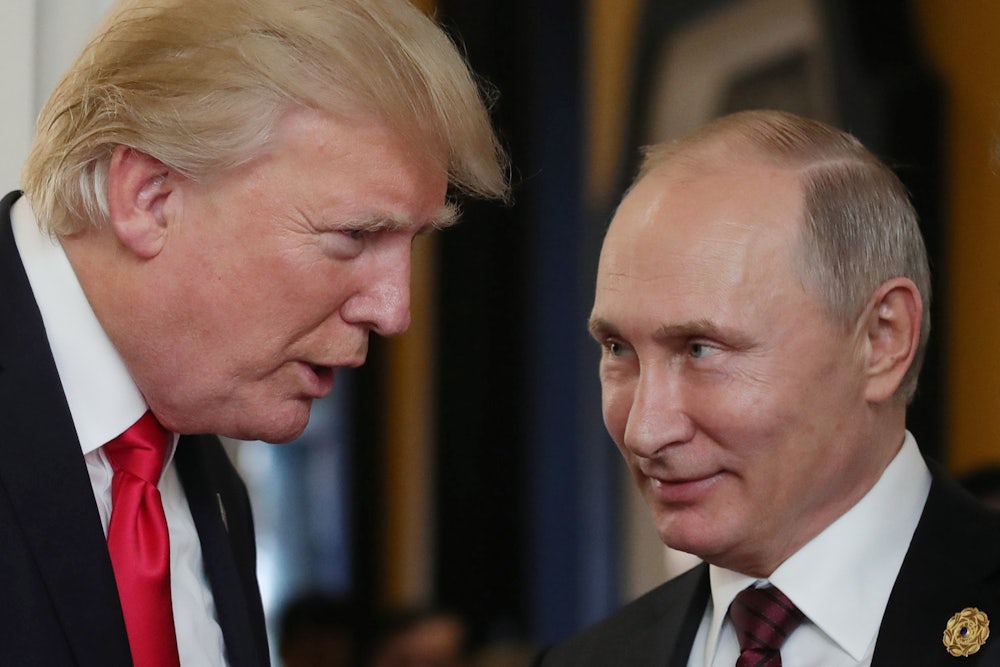Self-help books often instruct their supplicants to consider the people with whom they surround themselves, as they provide support and guidance at the most critical moments in life. Britain, which understandably objects to having its sovereignty violated for an assassination attempt with a flashy Soviet-era nerve agent, would appear to be in good company this week: at least 24 nations expelled Russian diplomats Monday in a show of solidarity against the Kremlin’s likely poisoning of former Russian spy Sergei Skripal and his daughter Yuliya in Salisbury earlier this month. France’s Emmanuel Macron and Germany’s Angela Merkel are reported to have led the allied charge, resulting in the expulsion of nearly 140 diplomats spanning from Seattle, Washington, where the U.S. has ordered a Russian consulate closed, to Russia’s western border, where Ukraine, the Baltic states, and Poland have all ordered expulsions.
It is an unprecedented action in the post-Cold War-era. But among the formation of western democrats standing shoulder to shoulder, marching resolutely if quixotically in the name of rules-based international order, one silhouette is missing: President Trump’s.
This is the largest expulsion of Russian diplomats since 1986, when President Reagan sent 55 Russian diplomats home in the culmination of a months-long tit-for-tat. Despite the gravity of the situation, President Trump has not remarked on the Skripal poisoning since March 13, when he told reporters “if we agree with [the U.K’s assessment that Russia conducted the attack], we will condemn Russia or whoever it may be.”
Since then, he has been mum on this momentous act of solidarity. Instead of making a personal statement about the decision, as President Obama did when he expelled 35 diplomats in response to Russian election meddling in 2016, Trump stayed silent. Thirty minutes before White House Press Secretary Sarah Sanders’s statement on the expulsions, he tweeted about “Fake News,” which he wrote “has never been more voluminous or more inaccurate.” The rest of the day, he tweeted about the economy and the stock market.
Trump’s silence at a time when most Westerners are raising their voices in stark opposition to the Kremlin is part of his multi-year symphony of praise for Putin. Early in his term, the President considered removing sanctions on Russia for its illegal annexation of Crimea, and reportedly had to be convinced to sign the tougher sanctions bill that Congress overwhelmingly passed last summer. When the administration finally rolled out the measures requested by the new law, it was widely ridiculed; rather than a careful cataloguing of corruption liabilities within the Russian government and business sectors, the so-called “Kremlin List” was simply a list of top Russian bureaucrats and 96 of the richest Russian oligarchs. Furthermore, the administration held off on imposing sanctions on Russia’s defense and intelligence sectors, as suggested by the bill, claiming that the law itself was serving as a deterrent to doing business with companies in the sector. And just this month, Rex Tillerson’s long-anticipated departure from the State Department came after he unequivocally denounced Russia’s likely role in the poisoning, a position that seemed to be at odds with President Trump’s more reserved statement to reporters.
But Trump is not always so suspiciously silent. After Russia’s presidential election, during which the Organization for Security and Cooperation in Europe observed “restrictions on fundamental freedoms, a lack of genuine competition” and an overall “coercive” election environment, Trump ignored the advice of key aides and congratulated Putin on his sham of an election win. Bristling at criticism of this decision, he wrote on Twitter: “I called President Putin of Russia to congratulate him on his election victory (in past, Obama called him also). The Fake News Media is crazed because they wanted me to excoriate him. They are wrong! Getting along with Russia (and others) is a good thing, not a bad thing. They can help solve problems with North Korea, Syria, Ukraine, ISIS, Iran and even the coming Arms Race. Bush tried to get along, but didn’t have the “smarts.” Obama and Clinton tried, but didn’t have the energy or chemistry (remember RESET). PEACE THROUGH STRENGTH!”
Trump’s apparent definition of strength involves delegating any statements that might generate conflict with Putin to underlings: While Trump stayed silent yesterday, Vice President Mike Pence, UN Ambassador Nikki Haley, and State Department Spokesperson Heather Nauert all made statements condemning the attack and explaining the U.S. expulsion and commitment to the transatlantic alliance.
As Trump attempts to beat back allegations of collusion with Russia dating back to the 2016 election, his silence is damning, but more worrisome is the effect his reticence has on policy. In this case, the United States and West as a whole are attempting to send an unequivocal message to Moscow: Using military-grade nerve agents brazenly in a sovereign state is unacceptable and in contravention to all international norms. It’s a message that comes with a high cost: Washington will almost certainly face the expulsion of more of its own diplomats in Russia, as well as the closure of another of its diplomatic properties. But this sacrifice will be for naught if the solidarity presented by the West is tarnished by Trump’s instinct to break ranks.
Until Trump makes an unambiguous personal statement against Putin, instead of running to his defense, the incongruity of his words and his administration’s actions will render any Russia-related policy, no matter how well-executed, impotent. Were world politics as simple as self-help books, British Prime Minister Theresa May might understandably find herself questioning the value of that friendship.
